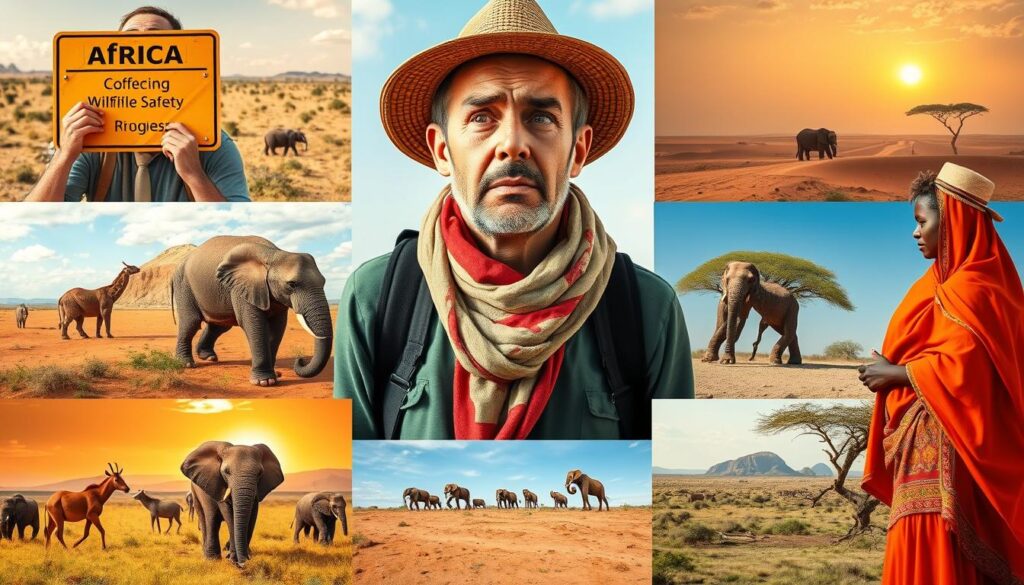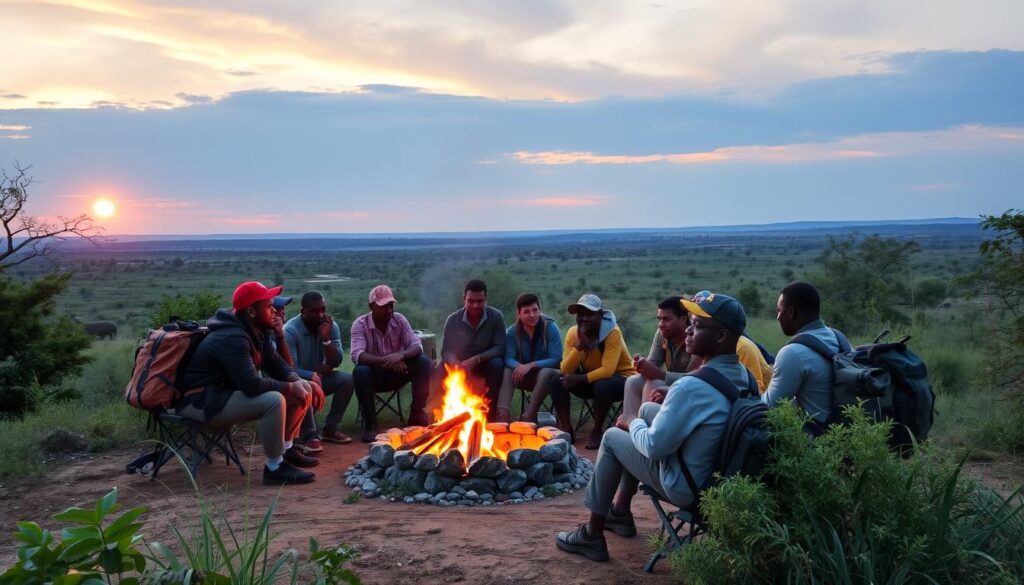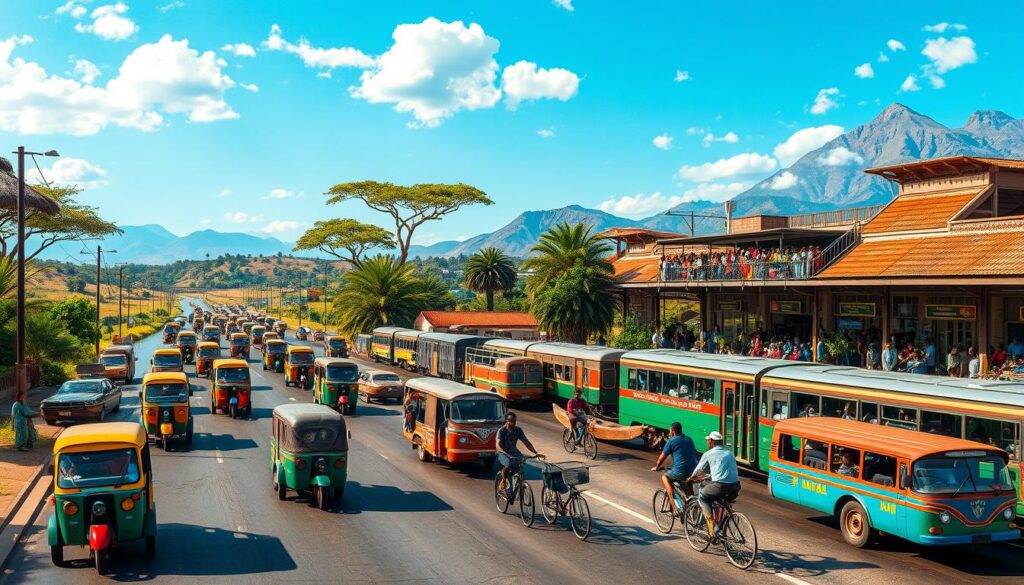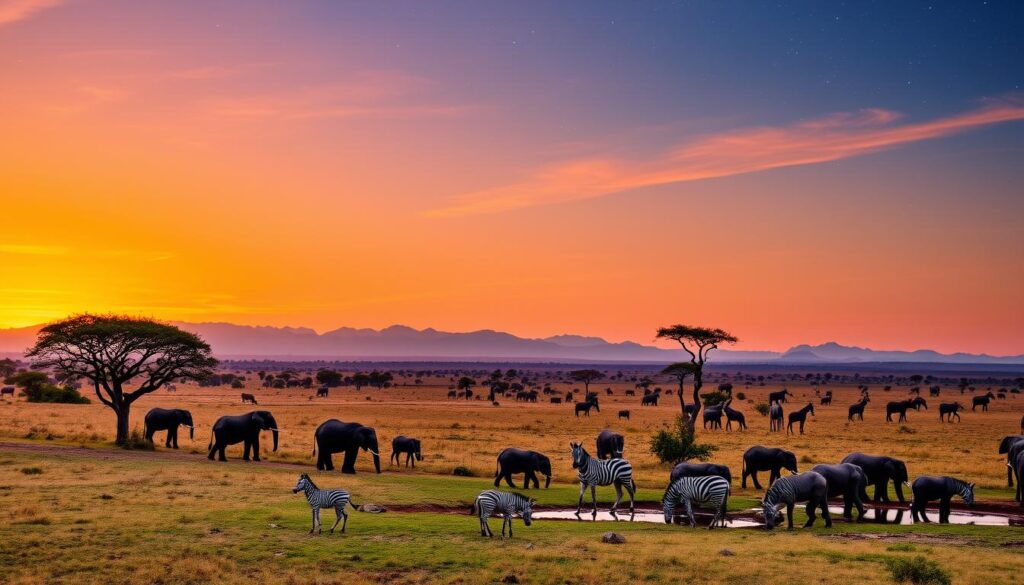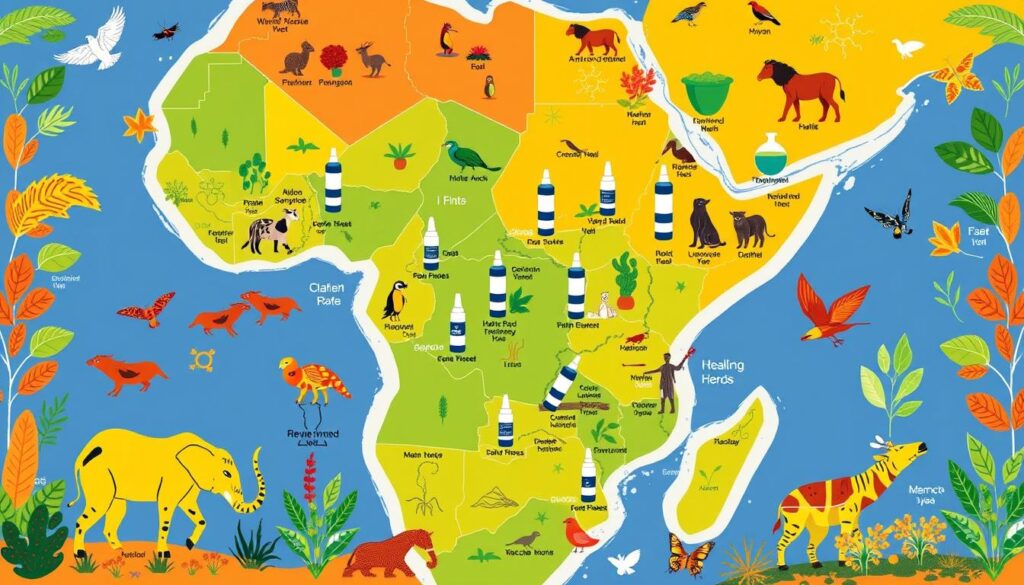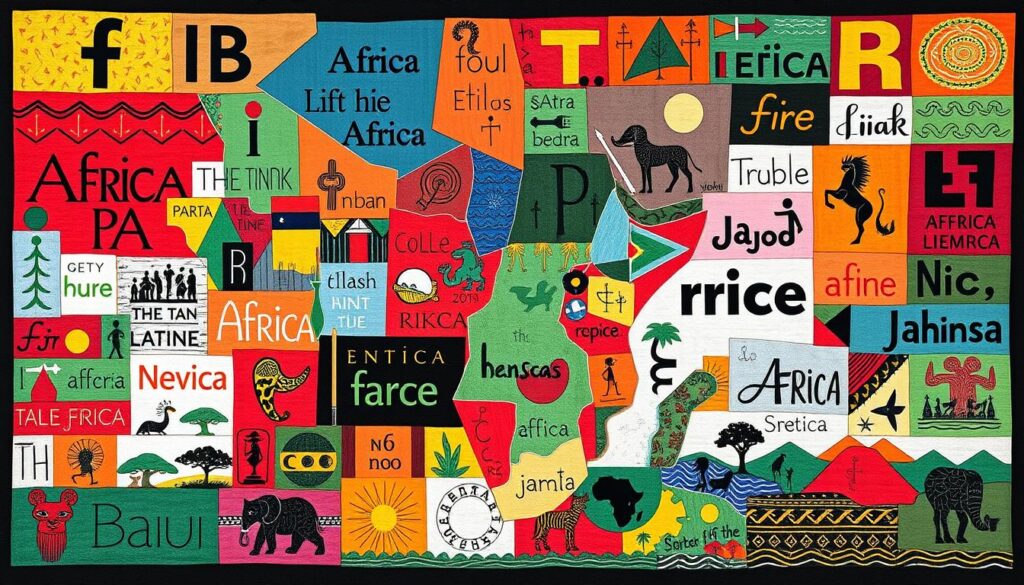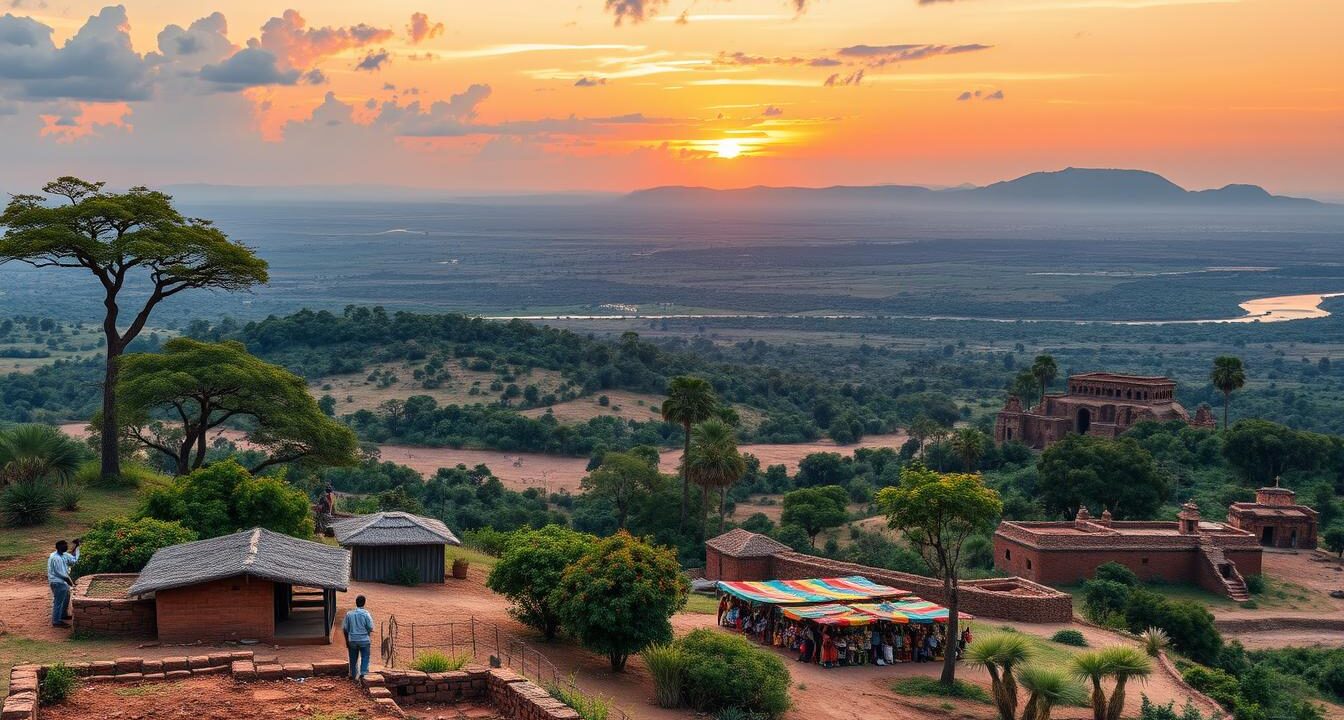
As I stepped off the plane, the warm, vibrant air of Africa enveloped me. It ignited a sense of wonder and anticipation. But, my initial enthusiasm was soon tempered by the realization that navigating the cultural nuances and practical challenges of this captivating continent would require a delicate balance.
It’s a dance that many tourists struggle to master. Often, they leave feeling overwhelmed or, worse, disrespectful.
If you’re planning a journey to the heart of Africa, this comprehensive guide is your roadmap. It will help you avoid the 25 most common mistakes tourists make. From respecting local customs to ensuring your safety and well-being, let’s embark on this adventure together. We’ll be empowered with the knowledge to truly immerse ourselves in the beauty and richness of Africa.
Key Takeaways
- Understand and respect cultural norms to avoid unintentional offenses
- Prioritize safety and security precautions to ensure a worry-free trip
- Navigate transportation and accommodation challenges with local insights
- Embrace the unique etiquette of wildlife viewing and safari experiences
- Prepare for potential health and medical considerations
Common Cultural Faux Pas When Visiting African Countries
Exploring African etiquette and cultural sensitivity is key for a good respectful tourism experience. Tourists often forget about local customs and traditions. This can lead to awkward and sometimes offensive situations. Here are some common mistakes to avoid when visiting African nations.
Dress Code Violations in Conservative Regions
When packing for an African trip, research the dress code of your destination. Some places, especially conservative ones, might find your clothes too revealing or casual. Wear clothes that cover your shoulders, knees, and midriff to show respect.
Inappropriate Gestures and Body Language
Some gestures and body language that are okay at home might offend in Africa. Don’t point with your finger, cross your arms, or use the “OK” sign. Watch how locals move and act to show respect.
Photo-Taking Without Permission
Many travelers love taking photos, but always ask before snapping pictures of locals, especially in rural areas. Some communities might see this as a privacy invasion or lack of respect. Always ask politely before taking a photo.
By understanding these cultural tips, you can enjoy your African trip with African etiquette. This way, you’ll have a memorable and enriching experience for everyone.
THE 25 MISTAKES TURIST KEEP MAKING IN AFRICA
Traveling to Africa can change your life. But, tourists often make mistakes that spoil their trip. Here are 25 errors to avoid for a great African adventure.
- Underestimating the vastness of the continent and trying to cover too much ground in too little time.
- Failing to research and respect local customs and cultural norms before visiting a destination.
- Packing inappropriate clothing that doesn’t conform to cultural dress codes.
- Forgetting to obtain the necessary travel documents, such as visas and permits, before departure.
- Neglecting to purchase comprehensive travel insurance that covers medical emergencies and trip cancellations.
Exploring Africa’s diverse landscapes and vibrant cultures needs careful planning. Knowing these common mistakes helps you have a better trip.
“The biggest adventure you can take is to live the life of your dreams.” – Oprah Winfrey
Whether you’re on a wildlife safari, cultural immersion, or beach vacation, being informed is key. It helps you deal with African travel errors and enjoy your time here.
By avoiding these 25 common travel mishaps, you’re set for an unforgettable African journey.
Safety and Security Oversights in African Travel
Traveling to Africa means keeping yourself safe. Many tourists overlook important safety steps, which can put them in danger. Let’s look at common mistakes and how to avoid them.
Ignoring Local Travel Advisories
Many tourists ignore travel advisories from local authorities. These advisories warn about dangers, political issues, or other safety risks. Not listening to these warnings can be very risky.
Careless Handling of Valuables
Showing off expensive items is another big mistake. Displaying expensive jewelry, cameras, or phones can attract thieves. Always keep your valuables safe, whether at home, on public transport, or while out.
Walking Alone at Night
Walking alone at night is risky, especially in new places. Criminals often target tourists who are out alone at night. Try to stay in well-lit, busy areas and use safe transport or travel with others.
Knowing these common mistakes and taking steps to avoid them can make your trip to Africa safer. This way, you can enjoy your travels without worry.
| Safety Mistake | Potential Consequences | Preventive Measures |
|---|---|---|
| Ignoring Local Travel Advisories | Exposure to threats, political instability, or other safety concerns | Research and stay informed about local safety conditions |
| Careless Handling of Valuables | Increased risk of theft or robbery | Maintain a low profile and keep valuables secure |
| Walking Alone at Night | Vulnerability to criminal activity | Stick to well-lit, populated areas and arrange for transportation or join a group |
Transportation Mistakes Across African Nations
Traveling in Africa can be tough for tourists. They face issues like unreliable public transport and long trips. Many visitors make mistakes that ruin their plans.
One big mistake is using unregulated public transit. It’s often unpredictable and unsafe. Not checking local travel plans and schedules can also cause problems.
- Failing to familiarize themselves with the complex and diverse public transportation systems in African cities
- Underestimating the time and effort required for long-distance travel between destinations
- Not accounting for traffic congestion, road conditions, and other transportation-related challenges
To avoid these issues, tourists should plan ahead. They should look for reliable transport and add extra time for trips. This way, they can enjoy their time exploring Africa’s cultures.
| Transportation Mode | Advantages | Disadvantages |
|---|---|---|
| Minibus (Matatu) | Widely available, inexpensive | Unreliable, often overcrowded, and can be unsafe |
| Taxi | Convenient for shorter distances, can be more reliable | Expensive compared to public transit, risk of overcharging |
| Train | Comfortable for long-distance travel, scenic routes | Limited route coverage, can be slow and unreliable |
| Rental Car | Flexibility to explore on your own schedule | Navigating unfamiliar roads, high insurance costs, and potential for accidents |
Knowing these common mistakes can help tourists have a better trip in Africa. They can enjoy the beautiful landscapes and cultures without stress.
Wildlife Viewing and Safari Etiquette Errors
Going on an African safari is an exciting journey. But, it has its own set of rules that every traveler should know. Following these rules helps protect the animals and makes the safari better for everyone. Let’s look at some common mistakes tourists make and how to avoid them.
Getting Too Close to Animals
One big mistake is getting too close to wildlife tourism animals. It’s tempting to take a great photo or get a closer look. But, it can really upset the animals and even be dangerous. Responsible animal viewing means keeping a safe distance and not disturbing their natural behavior.
Making Noise During Game Drives
Safaris are a chance to enjoy the quiet of the African wilderness. But, loud noises can scare animals away. Try not to make too much noise, like playing loud music or talking a lot. Stay calm and let the sounds of nature be your safari’s soundtrack.
Wearing Bright Colors on Safari
The colors you wear on a safari can affect your experience. Bright colors might scare animals away or make them more cautious. Wear neutral, earthy colors that blend in with the surroundings. This way, you can watch the animals without disturbing them.
By avoiding these common wildlife tourism mistakes, you can have a great and responsible African safari experience. Show respect for the animals, their homes, and the safari rules. This way, everyone can enjoy a sustainable and fun adventure.
“The best safari is not about ticking off items on a bucket list, but about experiencing the magic and wonder of the natural world.”
Health and Medical Preparation Blunders
Traveling to Africa can be thrilling, but ignoring travel health and medical needs can turn it bad. Not getting the right African vaccinations or not taking enough medical precautions can harm your health. These mistakes can ruin your trip.
Many travelers forget to get the needed vaccinations before going to Africa. Diseases like yellow fever, malaria, and typhoid are common there. Getting all the necessary African vaccinations is crucial for your health.
Another mistake is not bringing essential medicines. Having the right medical precautions can help if you get sick. Also, check the quality of healthcare where you’re going. Healthcare in Africa can vary a lot.
| Recommended Vaccinations for African Travel | Essential Medications to Pack |
|---|---|
|
|
Lastly, not getting travel health insurance is a big mistake. Medical emergencies can happen anytime. Without insurance, the costs in Africa can be too high. Get a good insurance policy that covers medical, trip cancellations, and delays.
“Prioritizing your health and safety should be at the forefront of your African travel planning. Taking the time to ensure you’re medically prepared can mean the difference between an unforgettable adventure and a trip fraught with complications.”
Accommodation and Booking Mishaps
Exploring Africa’s lodging options can be exciting but tricky. You’ll find everything from cheap hostels to fancy safari camps. But, even experienced travelers can make mistakes that ruin their trip.
Last-Minute Reservations During Peak Seasons
Many tourists wait too long to book their African hotel or lodging options. When it’s busy, like during the dry season or school breaks, places fill up fast. Prices also go up. So, it’s smart to book early to avoid these problems.
Overlooking Local Accommodation Standards
It’s easy to not know what to expect from African hotels. What looks great in one place might not in another. Knowing what’s normal in each area helps you avoid being disappointed.
By understanding these issues, you can find the perfect place to stay. This way, your lodging options and accommodation booking will match what you want and can afford.
“Choosing the right African hotel or lodging options can make or break your travel experience. Careful planning and attention to local standards are key to a successful accommodation booking.”
Dining and Food Safety Mistakes
Exploring Africa’s food scene is an exciting journey. But, it also has its challenges. It’s important to know about common food safety mistakes to enjoy the culinary experiences fully.
One mistake is skipping the local food. This means missing out on the unique tastes and traditions of each country. Trying new foods can lead to discovering amazing flavors.
Another error is ignoring food safety rules. Not washing hands, drinking unsafe water, or not following food hygiene can cause stomach problems. It’s key to stay safe and follow local advice for a great dining experience.
Lastly, not knowing the tipping customs can be awkward. Researching how to tip in each place helps show appreciation without offending anyone.
| Common Dining Mistakes | Recommendations |
|---|---|
| Avoiding Local Cuisine | Embrace the unique flavors and traditions of African cuisine |
| Neglecting Food Safety | Follow local guidance on safe dining practices, such as handwashing and water sources |
| Misunderstanding Tipping Customs | Research the expected gratuity etiquette for each destination |
“The true beauty of African cuisine lies in its diversity, reflecting the rich cultural tapestry of the continent. Embracing local food traditions is a gateway to a deeper understanding and appreciation of the region.”
By avoiding these common mistakes, travelers can have a great time in Africa. Their culinary experiences will be delicious, culturally rich, and unforgettable.
Communication and Language Barriers
Exploring Africa’s diverse cultures can be rewarding but comes with communication challenges. Many tourists assume English is widely spoken across the continent. However, there are over 2,000 African languages spoken, showing the vast language diversity.
To truly connect with locals and have a meaningful cultural exchange, learning a few basic phrases in native languages is key. This shows respect for local customs and helps bridge the communication gap, leading to deeper connections.
Assuming English Is Widely Spoken
Many visitors to Africa find that English proficiency varies, even in popular spots. This can cause frustration and misunderstandings, making everyday tasks like ordering food or asking for directions hard.
Not Learning Basic Local Phrases
Spending time to learn essential African languages phrases, like greetings and basic questions, can greatly improve your trip. It helps you communicate better and shows locals you’re willing to immerse yourself in their culture.
By being aware of language barriers and working to improve your communication skills, you can make your cultural exchange more meaningful. This way, you can create lasting connections with the people you meet on your African journey.
“The greatest barrier to communication is the illusion that it has been achieved.”
Money Management and Currency Issues
Traveling in Africa can be tricky because of the many currencies. If you don’t tell your bank you’re traveling, you might face card problems or extra fees. Always carry enough local money, as not all places take cards, especially in remote spots.
Knowing the exchange rates and fees is key to smart spending. Avoid unofficial currency booths, as they might give bad rates or fake money. Stick to banks or official exchange offices for the best deal on your currencies.
Good financial planning is crucial in Africa. Find out what payment methods are accepted and plan your budget for money exchange and other costs. Being informed and proactive helps you avoid expensive errors and enjoy your trip.

